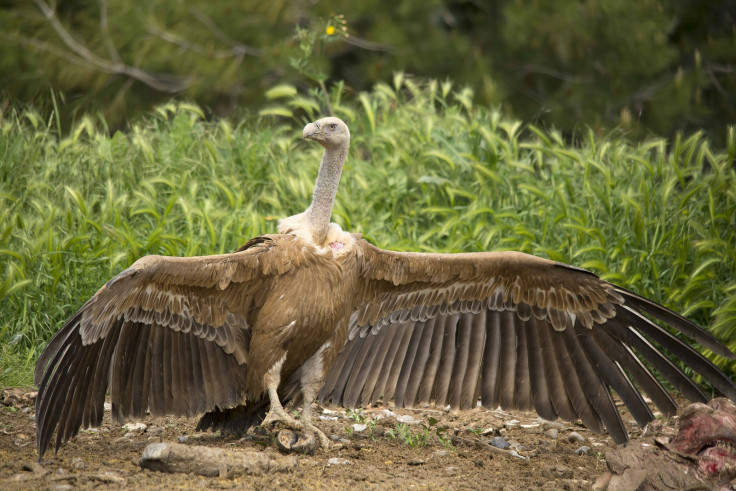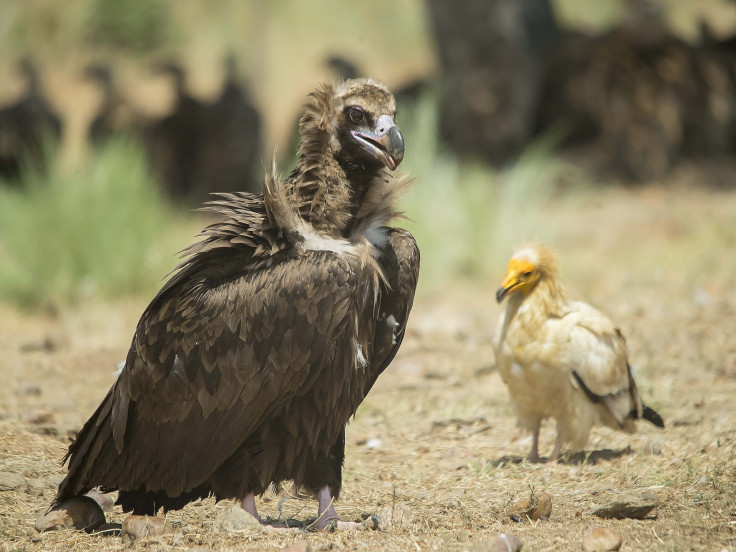Stop Vulture Poisoning Now: Warning as Species Under Threat of Extinction

Conservationists have warned vultures may become extinct in our lifetime unless something is done about a lethal drug which is poisoning them.
Two charities, BirdLife International and the Vulture Conservation Foundation (VCF) have launched a global campaign called Stop Vulture Poisoning Now, after 99% of the animals in India, Pakistan and Nepal were found to have been killed by the drug Diclofenac - a veterinary drug used to treat inflammation in livestock that is lethally toxic to vultures.
It was banned in the Indian subcontinent in 2006 after the decline in the vulture population left the landscape littered with their decaying bodies. This decline was faster than any other wild bird, including the Dodo, which is famous for its human-induced rapid extinction.
Conservationists are now concerned that the same thing could happen across Europe and Africa after the drug became available in Spain and Italy, both countries being strongholds for vultures.
In Africa, there is not only the threat of Diclofenac but the birds are also being hunted for their body parts to be used in medicines, along with losing their habitat and other cases of deliberate and accidental poisoning.
A study published in the journal Bird Conservation International, highlighted a further worry with reports that traces of Diclofenac had been discovered in dead Steppe eagles found in Rajasthan, India.
It is now believed the drug could have a similar effect on other birds who belong to the same familiar group, such as hawks, buzzards, kites and eagles. All of which are found in the UK.

Vultures are a scavenging bird of prey, who are famous for their bald heads and beady eyes.
They are not the cuddliest of creatures but they are important to our health and ecosystem.
"Vultures play a fundamental role that no other birds do: they clean our landscapes", said Iván Ramírez, Head of Conservation for BirdLife International in Europe and Central Asia.
There are 21 vulture species worldwide with four of these in Europe and 11 in Africa.
Out of the four in Europe, one is listed as endangered and two are listed as Near Threatened on the IUCN (International Union for Conservation of Nature's Red List of Threatened Species.
Out of the 11 species in Africa, seven are listed as globally threatened, and five of these only joined the list in the last seven years.
Despite there being safe and inexpensive alternatives for Diclofenac, loopholes in the risk assessment procedures enabled the drug to become legally approved by the Italian pharmaceutical company FATRO.
The VCF has since asked FATRO to voluntarily withdraw Diclofenac, but the company refused. They have now turned to several European governments and the European Union to help ban the drug.
© Copyright IBTimes 2025. All rights reserved.





















